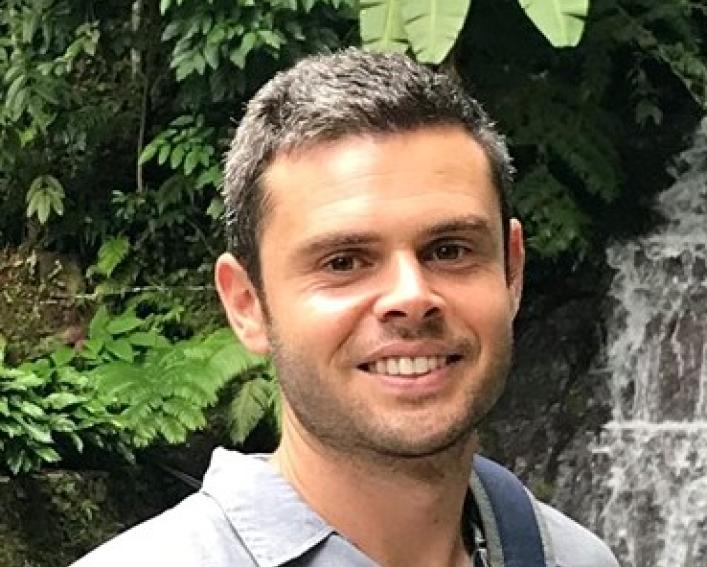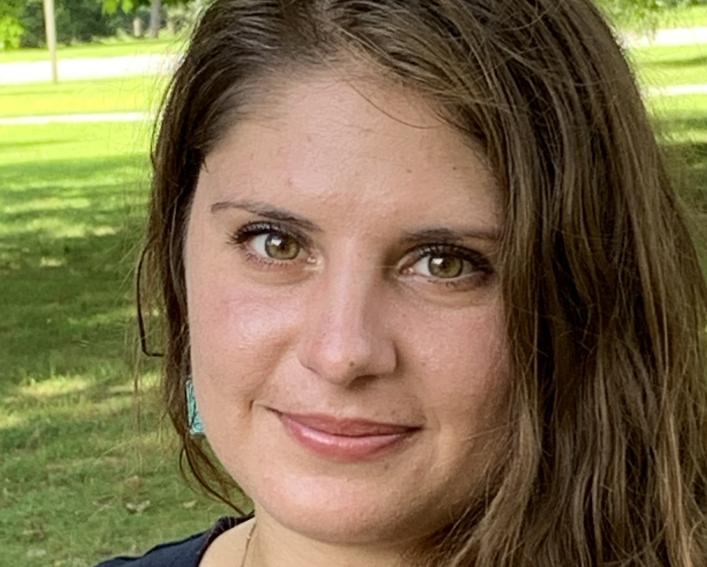Cornell’s Team Biochampions was composed of Global Development MPS students Justine Sequeira, Louise Erskine, Jake Kennedy, Sage Grasso-Monroe and Brendan Rosen, and their colleagues Shimeng Gao (CALS MPS) and Luis Fernando Perez (Dyson MS).
“North America’s resource systems are broken. The ends are frayed and working for very few,” said Erskine, who studies the impacts international agriculture has on rural communities. “The food we eat and the waste we produce are deeply connected to the air we breathe, the land we walk on, and the economies that support our families.”
The virtual competition from students in the Agrifood 5 Alliance of the world’s top agricultural universities — Cornell, University of California at Davis, China Agricultural University, University of São Paulo, and Wageningen University — was a lead-up up to the United Nations 2021 Food Systems Summit.
The Cornell team proposed a solution for today’s wasteful, linear and centralized food systems: to localize and modernize recycling with a central focus on biochar technology. Biochar provides several benefits to the community, namely as a soil amendment to increase water absorption, nutrient retention, and micro-organism growth; as a source of energy that can be used to create new biochar or sustain existing infrastructure; and as a tool to purify water sources. It is a viable carbon sequestration tool and can provide an opportunity to access carbon markets.
Team Biochampions proposed that academics, municipal policymakers, and environmental organizations should come together to create a how-to guide for successfully designing a city-wide waste-based circular economy. The Playbook could assess the current waste pathways, evaluate current waste infrastructure, and explore stakeholder needs, opportunities, and incentives - all while creating business for municipal waste facilities.
The team's academic advisors include Rachel Bezner Kerr, Andrew McDonald, and Rebecca Nelson. The challenge brought together 19 student teams from North and South America, Europe, Africa and Asia.
Get to know the MPS students in Global Development
Team Biochampions
Justine Sequeira
What are the big challenges you want to tackle in the world?
"I am interested in building agribusiness-centered climate finance models which enable investment in biodiversity as a public good."
Team Biochampions
Jake Kennedy
What does global development mean to you?
"To me, sustainable global development is the process of utilizing a global network of information and resources (from a wide range including social, educational, economic, infrastructural, and agricultural pursuits) in order to best suit the needs and projects that are assessed, addressed, and adapted by local stakeholders via localized ownership and control."
Team Biochampions
Louise Erskine
What has been the most memorable or impactful experience of your career so far?
"In 2019 I was hired as Alberta's youngest ever Ministerial Advisor, working each day to provide policy and political counsel to the Minister of Agriculture. I was tasked with liaising with Alberta's first Local Food Council, working together to create local food policy that would empower local farmers, small and large."
Team Biochampions
Brendan Rosen
What impact do you want to make on the world?
"I am hoping to help create a more sustainable and environmentally friendly global agriculture production and a more equitable food system. I want to motivate people to grow more food and take part in local environmental movements."
Team Biochampions
Sage Grasso-Monroe
What were you doing before the MPS program?
"I was stationed in the town of Mehal Amba, Ethiopia as a Peace Corps volunteer. My primary project was focused on constructing chicken coops and home gardens to improve food security."





Keep Exploring

News
- Department of Global Development
- Global Development

News
- Animal Science
- Agriculture
- Animals

We openly share valuable knowledge.
Sign up for more insights, discoveries and solutions.


